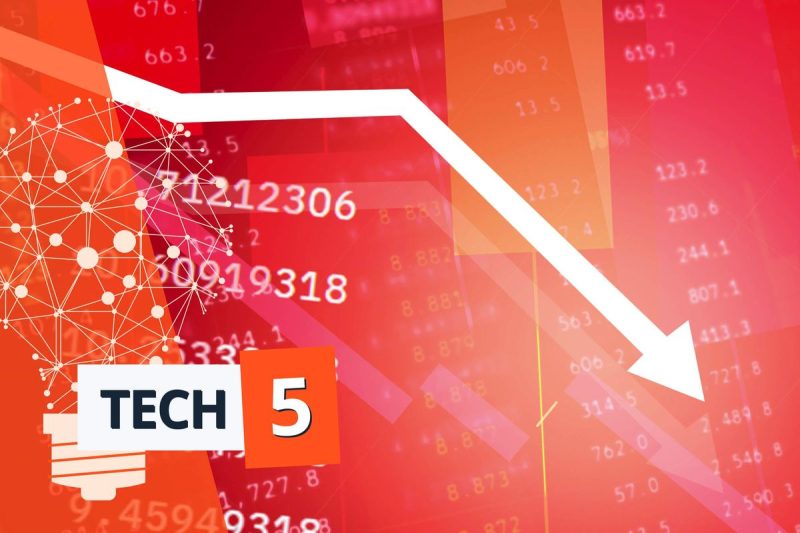The recent volatility and panic selling in the tech sector have left investors reeling, with many succumbing to the fear of an impending recession. Here, we delve into the five key recession fears that have fueled the tech selloff and explore the implications for the market.
1. **Global Economic Slowdown**: One of the primary concerns driving the panic selling is the specter of a global economic slowdown. Escalating trade tensions between major economies, such as the U.S. and China, have rattled markets and raised fears of a downturn. The tech sector, which is heavily reliant on international trade and supply chains, is particularly vulnerable to the impact of a slowing global economy.
2. **Yield Curve Inversion**: Another ominous indicator that has spooked investors is the inverted yield curve. When long-term interest rates fall below short-term rates, it typically signals an impending recession. The inversion of the yield curve earlier this year sent shockwaves through the market, prompting many to flee tech stocks in anticipation of an economic downturn.
3. **Geopolitical Uncertainty**: Geopolitical instability, such as the Brexit deadlock and tensions in the Middle East, has added to the climate of uncertainty gripping the market. The unpredictable nature of these events has sown doubt among investors about the future prospects of tech companies, leading to increased selling pressure on their stocks.
4. **Slowing Revenue Growth**: Concerns about slowing revenue growth in the tech sector have also played a role in the recent selloff. High-flying tech giants that once seemed invincible are now facing challenges in sustaining their rapid revenue growth rates. This shift in investor sentiment has led to revaluations of tech stocks, causing many to shed their positions in favor of safer assets.
5. **Regulatory Scrutiny**: Heightened regulatory scrutiny of tech companies, particularly regarding data privacy and antitrust concerns, has further dampened investor confidence. The threat of increased regulation and potential fines have cast a shadow over the profitability and growth prospects of tech firms, prompting many to reassess their investment thesis and reduce their exposure to the sector.
In conclusion, the convergence of these recession fears has ignited panic selling in the tech sector, resulting in a widespread selloff of tech stocks. While the uncertainty surrounding the market outlook remains high, it is crucial for investors to stay vigilant, conduct thorough research, and diversify their portfolios to weather the storm of economic instability. As history has shown, downturns are an inherent part of the market cycle, and disciplined investing strategies can help navigate turbulent times with resilience and resolve.
